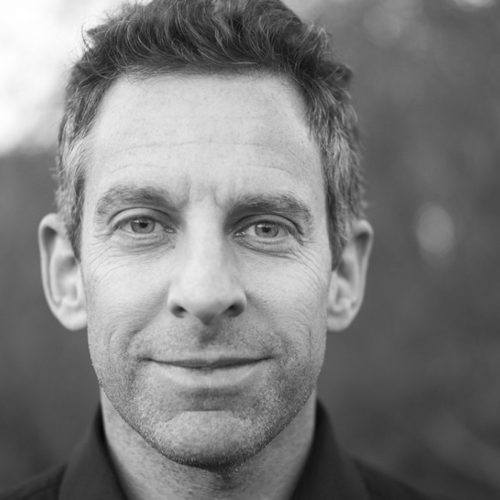This audio clip is from episode #34 with Sam Harris, Ph.D., originally released on December 20, 2018.

Show Notes
The transformative moment that led to Peter reaching out to Sam [3:45]
- Peter had a profound experience at a trauma recovery center called Bridge to Recovery
- Very little meditation experience prior, and mostly concentration based
- On day 10 at Bridge to Recovery, he had the first moment in his life he felt present and not worrying about the future or dwelling in the past
- Wondered if this was a glimpse of how life could be with meditation
- Called up Sam and Sam gave Peter access to his beta version of his meditation app
- “And in many ways, I view that as one of the most important transitions of my life. I think of life as a handful of direction changes that you look back at the past and say, ‘Wow, that was sort of a meaningful insight that came to me.’”
Hear more about Peter’s experience at Bridge to Recovery in the previous episode of The Drive with Paul Conti
Comparing the two broad types of meditation, and Peter’s favorite meditation apps [7:45]
“Thought really is the obstacle one is overcoming when one is learning to meditate”
2 broad types of meditation
- Mantra based/concentration based
- There is an object of focus and you’re attention is on that object to exclusion of everything else
- Goal is to get to the point where no thoughts arise
- This can produce extraordinarily positive states of mind such as bliss and rapture
- You can actually use specific states of mind as your object of focus
- Common example being ‘loving-kindness’, which is called Mettā meditation in the Buddhist tradition
- “You can cultivate specific attitudes which, if you can focus on them to the exclusion of anything else, you’re inhabiting that state to a degree that most people would find unrecognizable.”
- Mindfulness meditation
- Mindfulness meditation is named after “the target state that one is trying to cultivate”
- Vipassanā (insight meditation) is the origin of mindfulness practice
- You’re not trying to selectively notice one thing or another, you are trying to break the spell of being distracted by thought
- Attention can be much more choiceless than mantra based meditation
- “You’re noticing things all the time but you’re not noticing them clearly because you’re thinking every moment of the day”
- Mindfulness begins for most people as a training on one object like the breath, but very quickly it becomes something that you apply to the full range of your experience
- And apart from all the benefits of actually practicing the mindfulness meditation, this type of meditation is clearly coincident with any experience you can have in that there’s nothing that is excluded in principle from the meditation (you can be working out or watching a movie)
- “There’s no thing that in principle does not admit of mindfulness”
Meditation apps Peter personally recommends
- Waking Up – created by Sam Harris (Peter’s favorite)
- 10% Happier – created by Dan Harris (no relation to Sam)

Sam Harris, Ph.D.
Sam Harris is the author of five New York Times bestsellers and the host of the Waking Up Podcast. His books include The End of Faith, Letter to a Christian Nation, The Moral Landscape, Free Will, Lying, Waking Up, and Islam and the Future of Tolerance (with Maajid Nawaz). The End of Faith won the 2005 PEN Award for Nonfiction. His writing and public lectures cover a wide range of topics—neuroscience, moral philosophy, religion, meditation practice, human violence, rationality—but generally focus on how a growing understanding of ourselves and the world is changing our sense of how we should live. Harris’s work has been published in more than 20 languages and has been discussed in The New York Times, Time, Scientific American, Nature, Rolling Stone, and many other journals. He has written for The New York Times, The Los Angeles Times, The Economist, The Times (London), The Boston Globe, The Atlantic, Nature, The Annals of Neurology, and elsewhere. Sam Harris received a degree in philosophy from Stanford University and a Ph.D. in neuroscience from UCLA. For more, see his publications and lectures. [samharris.org]



